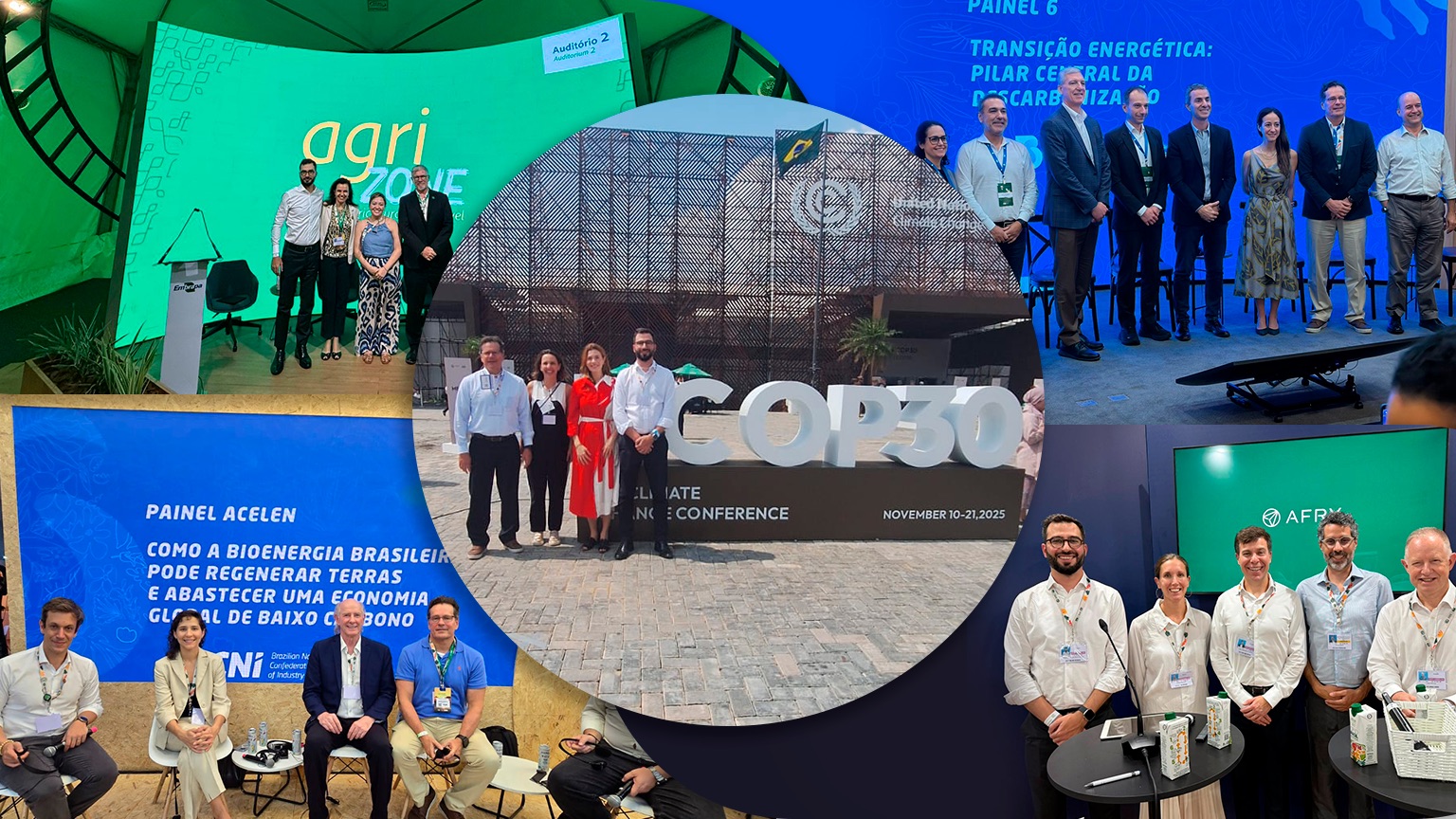Acelen Renewables’ participation in COP30 reinforces Brazil’s protagonist role in the climate agenda and highlights the strategic and leading role of advanced biofuels — especially macauba — in decarbonizing the energy, transport, and agricultural sectors
During COP30, while the world debated ways to contain the climate crisis, Acelen Renewables presented real results, a scalable project and Brazilian solutions to accelerate global decarbonization.
We presented the full energy potential of macauba, a native Brazilian plant – a second- generation feedstock that can reduce greenhouse gas emissions by up to 80% compared to those of fossil fuels.
The company’s presence in key international debates helped strengthen Brazil’s position as a player capable of leading the energy transition with innovation, sustainability, and a positive socio-environmental impact.
Acelen Renewables participated in strategic roundtables and forums alongside:
- Brazilian government officials
- scientists and researchers
- diplomats
- the private sector
- civil society
And it took part in nine roundtables and eight high-level panels addressing such essential topics for the future of energy as:
- Energy and food security.
Amcham
Debate on how bioenergy and food production can coexist with environmental responsibility .
- Brazilian leadership in SAF (sustainable aviation fuel).
AFRY
Presentation on Brazil’s role in the global expansion of sustainable aviation fuel.
- Industrial transition and low-carbon economy.
CNI – SB COP Business Dialogue
Discussion on how public policies and innovation can accelerate emissions reduction.
- Aviation expansion and demand for sustainable fuels.
LATAM
Joint analysis of challenges and opportunities for air transport in decarbonization.
- Innovation and market mechanisms.
DOW & BCG
How market models can unlock value and encourage green investments.
- Non-tariff barriers to biofuels.
ABBI
Discussion on how technology and certifications can open new markets.
- Sustainability and regenerative agriculture.
ECCON & Cubo Itaú
How planting macauba contributes to regenerating degraded land and generating income
- Green skills and entrepreneurship.
Sebrae & SBCOP
The role of MSMEs in the transition to a low-carbon economy.
- Policies to scale up SAF production.
Amcham & US Chamber of Commerce
Regulatory and financial solutions to unlock global sector growth.
BCIU & Bayer
Policy and financing models to accelerate sustainable fuel production.
- Resilient economies and green infrastructure.
ITA – Build Clean Now
Strategies to strengthen economies with sustainable investments.
- Bioenergy and land regeneration.
CNI & Acelen
How Brazilian bioenergy can drive a low-carbon economy.
In these spaces, the company presented the potential of Brazilian bioenergy to boost critical sectors, such as aviation, agriculture, industry, and logistics, toward climate neutrality.
Acelen Renewables’ participation in COP30 reinforced that Brazil has the technical, regulatory, and environmental capacity to lead the energy transition to a low-carbon economy.
